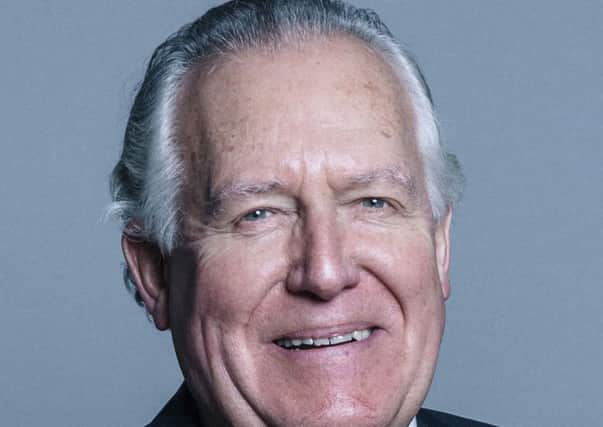Lord Hain's decision to name Topshop owner condemned as '˜arrogant'


Former Cabinet minister Lord Hain used the protection of parliamentary privilege to identify the Arcadia chairman as the individual behind a legal injunction preventing The Daily Telegraph from publishing “confidential information” from five employees.
Sir Philip “categorically and wholly” denied being guilty of any “unlawful sexual or racist behaviour”, in a statement issued hours after the Labour peer’s intervention in the House of Lords.
Advertisement
Hide AdAdvertisement
Hide AdLord Hain said he was “completely unaware” that a law firm he is paid to advise was acting for the Telegraph in the case.
Legal experts questioned the former Cabinet minister’s decision to exercise his right to name Sir Philip because the case is going through the courts.
Former attorney general Dominic Grieve QC said Lord Hain’s behaviour had been “clearly arrogant” and he had abused parliamentary privilege. “You cannot operate a democratic, free society subject to the rule of law when peers or MPs decide quite capriciously to take the law into their own hands,” he told BBC Radio 4’s World at One.
And ex-lord chief justice Lord Judge told the programme he thought Lord Hain was wrong, adding: “I don’t think that parliamentary privilege is designed to take away any citizen’s rights, even if we don’t very much like them.”
The principle of parliamentary privilege means that MPs and peers cannot be sued for libel for comments made in the Houses of Parliament, and offers protection to media outlets reporting the comments.
Lord Hain said he felt he had a “duty” to name Sir Philip.
The peer acts as a global and governmental adviser for Gordon Dadds, the firm representing the Telegraph. But he insisted he took his decision acting in a “personal capacity” and “I categorically state that I was completely unaware Gordon Dadds were advising the Telegraph regarding this case.
“Gordon Dadds, a highly respected and reputable international law firm, played absolutely no part whatsoever in either the sourcing of my information or my independent decision to name Sir Philip.”